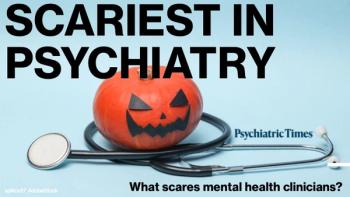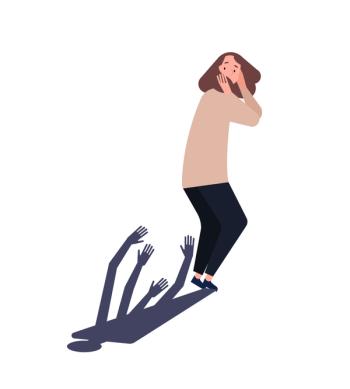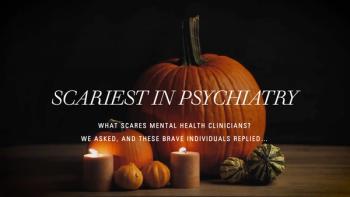
Turning the Light on Imposter Syndrome
Imposter syndrome can be frightening…
SCARIEST IN PSYCHIATRY
In this series, Scariest in Psychiatry, we asked clinicians about the scariest topic in mental health. What’s frightening, worrisome, or concerning in psychiatry? Here’s how they answered.
My biggest fear is falling for imposter syndrome. When someone decides to go into the mental health field, they often walk in with a DSM and an understanding of psychological theories and concepts. What one is never fully prepared for is the many unique ways each client will present their symptoms. The ever-complex ways and alternative diagnoses impact clinical decision-making, and let’s not forget that at times we will only be working with limited amounts of information at the time of initial assessment. When I first started in the field, each day, I sat wondering if I was really cut out for this work—a work I wholeheartedly believed in because I have seen firsthand how helpful it can be. Yet 10 years post graduate school, imposter syndrome still feels like the scary monster under the bed.
Imposter syndrome or phenomenon is defined in the American Psychological Association Dictionary as “successful individuals paradoxically believing they are frauds who ultimately will fail and be unmasked as incompetent.” It is a collection of feelings regarding inadequacy that persist, despite evident supporting success. Those who experience imposter syndrome often suffer from chronic self-doubt and feelings of intellectual fraudulence. I do not know about you, but that is a scary feeling. What is even scarier is that for the most part, no one ever tells you that they are suffering from imposter syndrome. This is unfortunate because the normalization alone would help individuals move out of their feelings of doubt and step into assurance of their competence.
When we sit in doubt, we often perform poorly. It takes us twice as long to complete a task and we find ourselves never truly satisfied with our performance. What I find comforting amid addressing my biggest fear, is knowing I am not alone. Every single time I have shared with other mental health professionals this little haunting feeling of imposter syndrome, it is always met with validation and sometimes even a story of a time they felt the same. I recall words from one of my great mentors, who has spent over two decades in the field of psychotherapy, “I question myself every day, but I do not let that stop me from showing up.”
When we metaphorically turn the lights on our scariest thoughts, we learn that that monster by the door was just a jacket on the hook. Here is what I have learned and continue to remind myself while facing my fears: Confidence does not equal competence. While my long history of watching “Law and Order” as a little girl with my grandmother may have aided in my confidence to provide a stellar closing argument in court, it does not mean I am competent or qualified to do so. This thought invites me to examine my thoughts of inadequacy and find the distortion. It is a call to action to remind myself of the tools and knowledge I hold. To feel confident and know that I will always show up and do my best; but to remember that perfection is never the expectation. After all, it is our positive light that will always help us see what is really in the room.
Ms Sheltonis a licensed clinical social worker with
Newsletter
Receive trusted psychiatric news, expert analysis, and clinical insights — subscribe today to support your practice and your patients.






